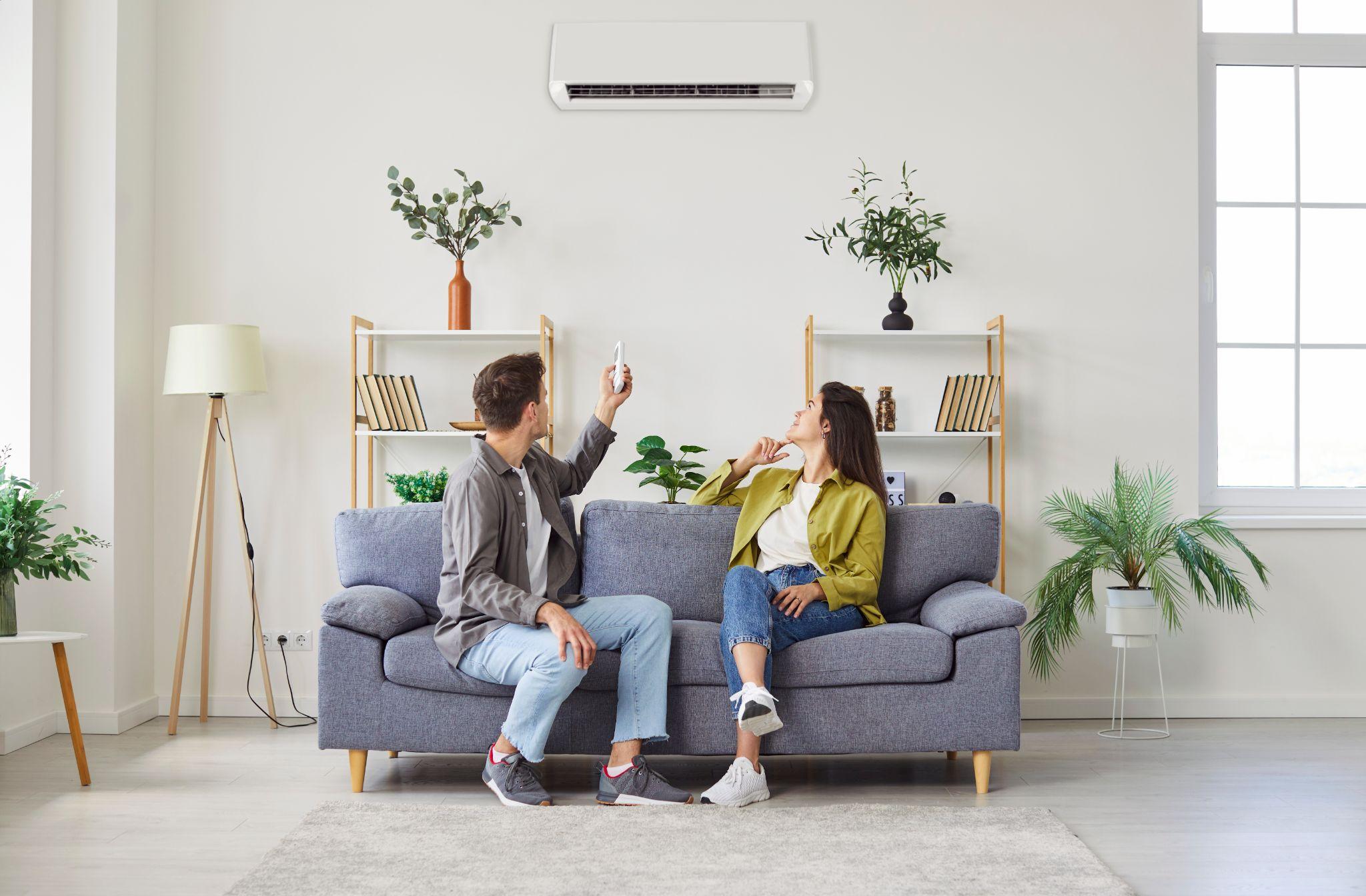LICENSED, INSURED & BONDED SINCE 1985 WITH 35 YEARS OF EXPERIENCE • (818) 483-0139
Heat pumps are an increasingly popular choice for energy-efficient heating and cooling in many homes. Unlike traditional HVAC systems that generate heat or cold air, a heat pump transfers heat from one place to another. Use this guide to find out if you have a heat pump.
What Is a Heat Pump?
A heat pump is an HVAC system that provides heating and cooling through heat transfer. During warmer months, it works like an air conditioner by drawing heat from inside the house and releasing it outdoors.
This process is reversed when temperatures drop, and the heat pump becomes a heating system to bring warmth indoors. This transfer of heat, rather than generating it, makes heat pumps highly efficient, using less energy and potentially lowering utility costs.
How to Check If You Have a Heat Pump
If you’re uncertain whether your home has a heat pump or a traditional air conditioner and furnace split system, there are several easy ways to check:
1. Look for Labels on the Outdoor Unit
Inspect the labels on the outdoor unit of your HVAC system. Often, manufacturers will label heat pumps as such. You may see terms like “heat pump,” “HP,” or model information indicating that the unit is a heat pump. Look for terms like “reverse cycle” or “defrost cycle,” which are specific to heat pumps.
2. Observe the Unit During Cold Weather
Turn your thermostat to heat mode and set it a few degrees above the indoor temperature. If the outdoor unit runs while the system is in heating mode, you likely have a heat pump. A traditional air conditioner won’t operate in heating mode.
3. Check for a Reversing Valve
If you can look inside the outdoor unit’s access panel safely and with the power off, a heat pump will have a reversing valve, which allows it to switch from heating to cooling modes. This is a defining feature of heat pumps.
4. Consult Your Thermostat or User Manual
Some thermostats have settings that specify “heat pump” operation. If you can’t tell from the unit itself, check the thermostat settings or consult the heating and cooling system user manual for clues about the type of system installed in your home.
Signs Your Heat Pump Is Working Properly

Some signs your heat pump is working effectively are:
Smooth Temperature Control
A properly working heat pump should keep indoor temperatures comfortable, with a relatively even and consistent output of warm or cool air. If you notice fluctuating temperatures, hot or cold spots, or difficulty maintaining a set temperature, it could be a sign of an issue.
Normal Operating Sounds
While heat pumps are generally quieter than traditional HVAC systems, you may hear some mild sounds during operation, especially when switching modes. However, if you notice banging, rattling, or grinding noises, this could indicate a problem requiring professional attention.
Minimal Ice Buildup
During winter, it’s normal for some frost to accumulate on the outdoor unit, but a properly functioning heat pump will go through a defrost cycle to remove excess ice. If you notice significant ice buildup or your heat pump remains iced over without melting, it could be struggling to perform its job efficiently.
Effective Airflow
Strong blowing air from your vents indicates that your heat pump’s fan is working properly to circulate air throughout your home. Reduced airflow can be a sign of clogs, obstructions, or motor issues, impacting your system’s ability to heat or cool effectively.
Efficient Energy Usage
If your energy bills are consistent and reasonable for your usage, it’s a good sign that your heat pump is working efficiently. Unexplained spikes in your energy bills could indicate that your system is struggling and may need maintenance or repairs.
When to Call a Plumber for Heat Pump System Service
If you notice any of the following issues, it may be time to call a professional for inspection and repair:
- Inconsistent Temperatures: If your heat pump struggles to maintain the set temperature, this could indicate issues with the refrigerant levels, compressor, or thermostat.
- Unusual Noises: Grinding, clanging, or rattling noises may indicate loose components or motor issues that a professional should investigate.
- Persistent Ice Buildup: Constantly iced-over units indicate a defrost cycle problem requiring professional repairs.
- Frequent Cycling: Short cycling, where the system repeatedly turns on and off without reaching the desired temperature, is a sign of potential issues that should be evaluated and corrected by a professional.
- Spiking Energy Bills: If your energy bills are increasing without a clear reason, a professional can assess the system’s efficiency and make necessary adjustments or repairs.
Heat Pump Installations and Repairs in Southern California
If you’re experiencing any issues with your heat pump system or need help identifying whether you have one, contact Lynch Plumbing. Our skilled heat pump technicians install, repair, and service heat pumps in the San Fernando Valley, Santa Clarita Valley, and Los Angeles and Ventura counties. Contact us today to schedule an appointment and keep your system running smoothly for every season.






